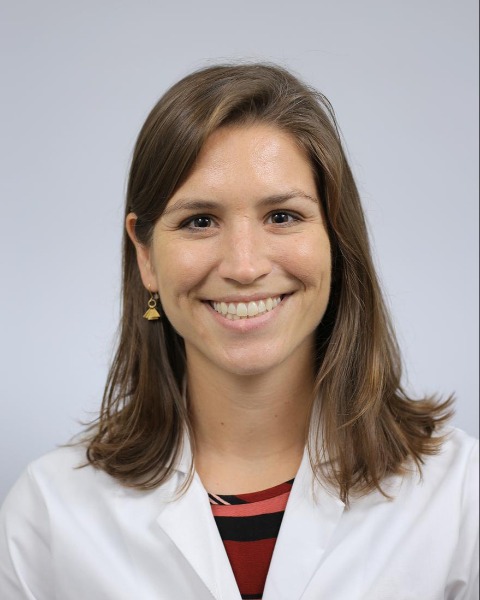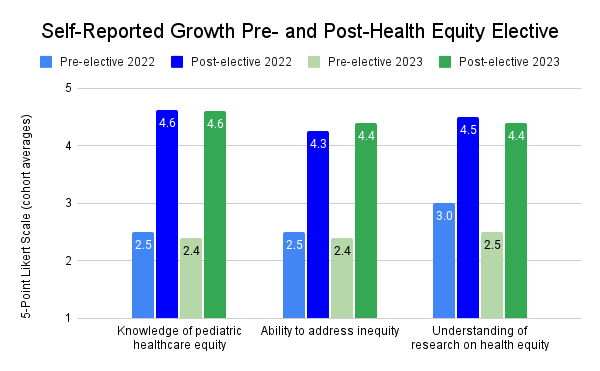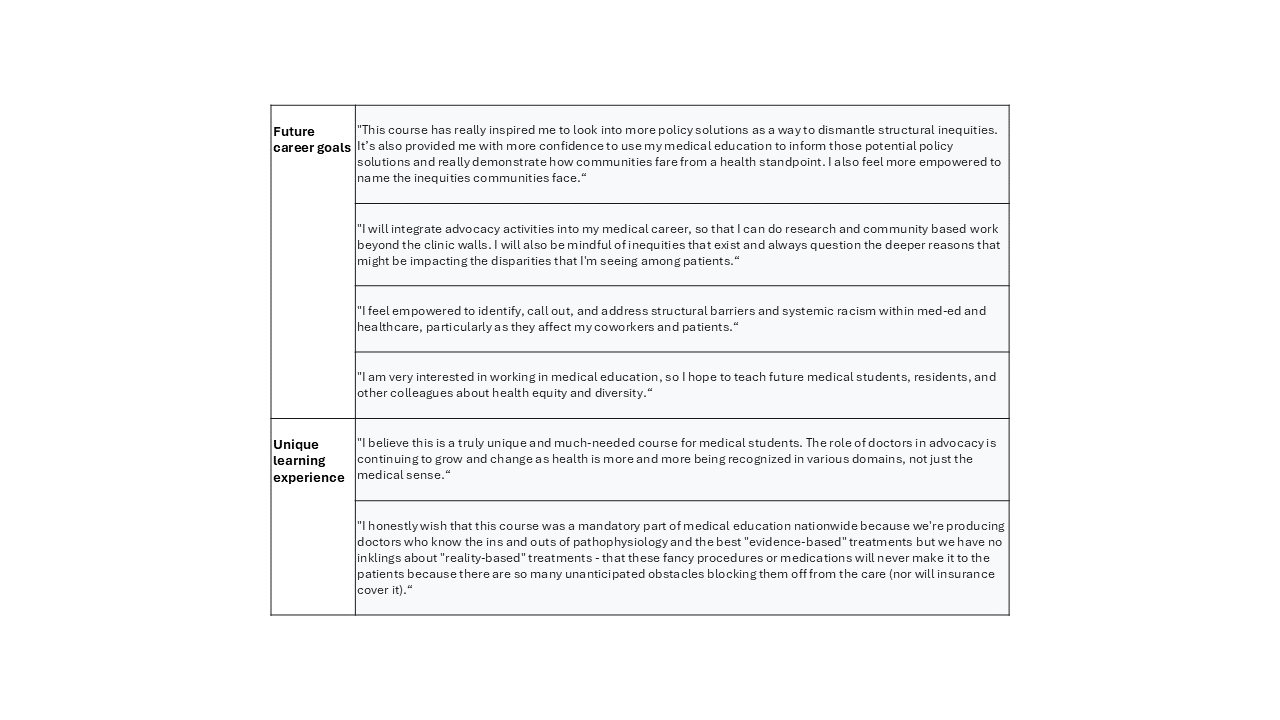Medical Education 6: Health Equity
Session: Medical Education 6: Health Equity
442 - Building Health Equity: Outcomes from a Novel Curriculum for Fourth Year Medical Students
Saturday, April 26, 2025
2:30pm - 4:45pm HST
Publication Number: 442.4308
Elizabeth Hubbard, Children's National Hospital, Washington, DC, United States; Spandana Induru, Childrens Hospital Los Angeles, Los Angeles, CA, United States; Margarita Ramos, Children's National Hospital, Arlington, VA, United States; Matthew Magyar, Children's National Health System, Washington, DC, United States

Elizabeth Hubbard, MD MEd (she/her/hers)
Clinical Instructor
Children's National Hospital
Washington, District of Columbia, United States
Presenting Author(s)
Background: Inequity is pervasive within the healthcare system. Existing medical curricula do not always adequately prepare trainees to address and confront this challenge. There is benefit to a structured pedagogical experience that explores underlying health inequities so that future physicians can recognize and understand them. As trainees move forward in their careers, they can develop unique and creative solutions that build healthcare equity.
Objective: To develop a novel health equity curriculum for fourth year medical students that enables their understanding of health equity and how it can be integrated into their future careers as pediatricians.
Design/Methods: This novel curriculum was implemented as a 2-week elective, with 2 cohorts of students participating from 2022-2023. Through a combination of interactive didactics, in-person field experiences, journal club sessions, and weekly reflections, this course introduced students to pertinent topics in pediatric health equity. Positioned in Washington, D.C., the course offered unique exposure to professionals and institutions working to mitigate outstanding imbalances in health equity and inclusion. Students demonstrated the ability to communicate on equity-centered topics through weekly reflection papers and a final presentation. Their self-rated level of health equity knowledge, ability to address inequity, and comprehension of health equity research were assessed immediately preceding and following the course.
Results: Over two years, 16 medical students from across the country participated in this curriculum. Students self-rated growth increased across all 3 areas assessed: knowledge of pediatric healthcare equity, ability to address health inequity, and understanding of health equity research (figure 1). Students reported that they felt this course provided a unique learning opportunity and described how their experience in this course changed their future career goals and how they hope to practice medicine (table 1).
Conclusion(s): This pediatric health equity curriculum addresses an increasingly recognized area of need for medical student growth in a format that can be reproduced at other medical training institutions. Participating medical students self-reported increased growth in knowledge of pediatric healthcare equity, increased confidence in ability to address inequity, and increased understanding of health equity research. This skill set can propel the next generation of physician leaders in addressing a topic that may be currently under-addressed in medical education.
Figure 1.
 Student trends in self-rated level of knowledge around three major course objectives from 2022-2023.
Student trends in self-rated level of knowledge around three major course objectives from 2022-2023.Table 1.
 Selection of student reflections on the course from both 2022 and 2023.
Selection of student reflections on the course from both 2022 and 2023. 
